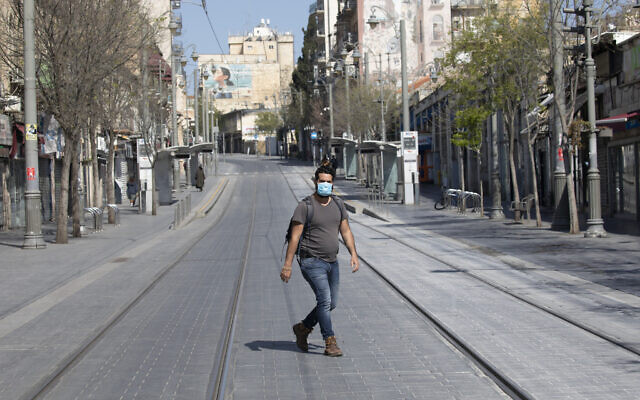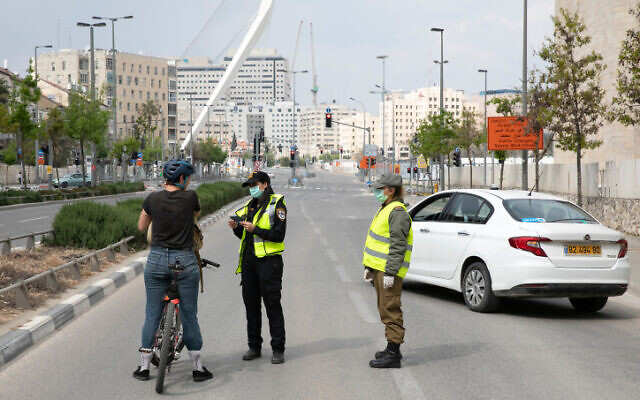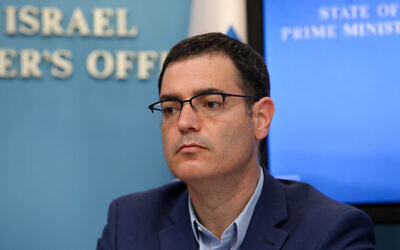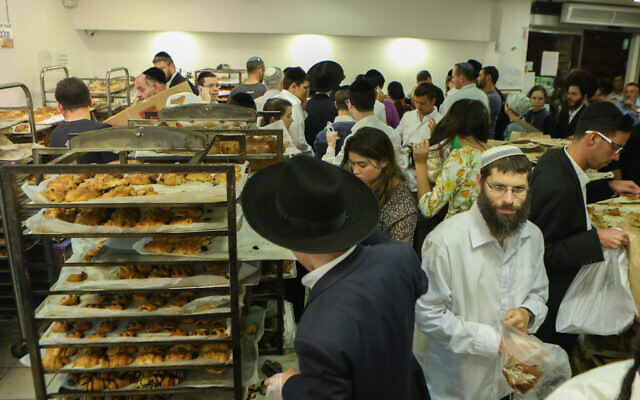Infection cases at 12,591; bakeries reopen, limited public transportation resumes and Israelis can again leave hometowns if they comply with restrictions

Israel on Thursday lifted a nationwide closure imposed for the end of the Passover and Mimouna festivals as officials indicated they could slowly start easing lockdown restrictions imposed to battle the spread of the coronavirus.
Meanwhile the national death toll climbed to 143, with the deaths of 12 more people. The number of infection cases rose by 90 in the morning to 12,591, with 174 people in serious condition, of whom 140 were on ventilators. Another 172 were in moderate condition, and the vast majority displayed mild symptoms. The Health Ministry said 2,624 people had recovered.
A similar closure has also been imposed since Sunday on several ultra-Orthodox neighborhoods in Jerusalem where high infection rates have been reported. It was not immediately clear whether checkpoints were being removed there as well.
Channel 12 reported earlier that the closures would likely not be extended, saying while officials believe they have been effective in the particularly hard-hit communities, they were now looking towards more pinpointed steps.
Meanwhile, the government said Wednesday it was to consider a limited reduction of coronavirus restrictions in the coming days.
The cabinet was to discuss plans Thursday afternoon for a gradual return to semi-normalcy, though officials stressed that it would be a long while before life returns to pre-pandemic routine.
Health Ministry Director General Moshe Bar Siman-Tov told Channel 13 news on Wednesday that an easing of restrictions will “likely happen in the coming days.” He added: “If the Israeli public continues its excellent behavior, we’ll be able to take further steps forward.”
The Health Ministry also announced that Israel in the past two days had for the first time surpassed 10,000 coronavirus tests a day. Monday saw 10,401 tests carried out, while the total reached a high of 11,501 Tuesday. The goal of 10,000 tests a day was achieved weeks after its initial target date due to equipment shortages.

Channel 12 reported on an ongoing tug of war between the Health Ministry and Finance Ministry on planned removal of restrictions, with the latter pushing for more significant steps while the health officials urged caution. However, according to Channel 13 news, all sides agreed that the removal of limitations would be slow, and that the new normal would be different to what people have known.
“We don’t like the term ‘exit strategy’ but rather ‘routine under coronavirus,’” Bar Siman-Tov said. “Because coronavirus is here. It’s not leaving us… We’ll have to take measured steps, see that things are under control and if they stay that way, go a little bit further every time.”
Among the steps the Finance Ministry was pushing for was a reopening of small shops Sunday or Monday, a move the Health Ministry said was premature, according to Channel 12. Health officials were pushing for raising the number of workers allowed to come in to offices, but keeping stores shut.
An immediate reopening of the education system was not seen as viable. But one move under consideration was allowing families to organize in groups of four to allow them to take turns in watching over children and thus enabling parents to work or simply to take a break as preschools and schools remain closed.
Any steps will be followed by close examination of the effects on infection rates, with the possibility of snapping back restrictions if cases rise. The Health Ministry was expected to recommend that whatever steps are taken, people over 65 will be told to remain at home for at least two more weeks.

“As around the world, we are feeling around in the dark,” a ministry source told Channel 12 of the necessary caution as the country tries to reopen the economy. “The public must understand that every easing [of restrictions] means more dead.”
Defense Minister Naftali Bennett said in a statement Wednesday night he believed Israel should reopen much of the national economy as well as some of the education system this coming Sunday. He particularly called for relaunching work in the fields of industry, trade and services.
“Continuing the closure at its current level or a slightly reduced one will cause critical harm to Israel and its citizens,” he said.
Police on Wednesday warned of signs that public discipline in keeping to social distancing guidelines was becoming lax, with officials say they’d given out some 3,000 fines over Tuesday and Wednesday, the end of Passover, a number they said was about 1.5 times higher than fines given out on Passover eve last week.
Police said that during the holiday they had broken up a circumcision event in an ultra-Orthodox Jerusalem neighborhood attended by over 200 people. Several participants assaulted police officers and hurled eggs at them, officials said.
As reported by The Times of Israel

